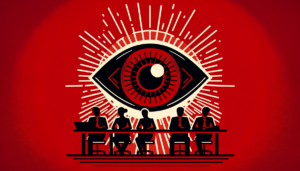Navigating new horizons in HR
- 4 Min Read
Exploring HR’s new frontiers involves embracing technology, fostering diversity, and developing dynamic strategies to manage evolving workforce expectations and challenges
- Author: HRD Connect
- Date published: Nov 13, 2023
- Categories

In a recent roundtable discussion held by HRD Connect, in partnership with Mercer, leading HR professionals gathered to explore the evolving landscape of human resources, particularly in the wake of recent global challenges.
The discussion centred around how HR functions are adapting to new realities, focusing on employee experience, flexibility, and the integration of technology.
The roundtable was conducted under Chatham House rules and so participants and comments are not attributed to specific individuals. The discussion was led by Matt Elliot, chief people officer at the Bank of Ireland.
Key themes
1. Evaluating the relevance and evolution of the Ulrich model in contemporary HR contexts.
2. Addressing the complexities of reaching and engaging employees in sectors with dispersed workforces.
3. Reflecting on the challenges posed by the pandemic and strategies for rebuilding trust and morale.
4. Discussing the changing expectations around workplace flexibility and the challenges in implementing hybrid work models.
5. Exploring the changing nature of leadership and management in response to new workforce expectations.
6. Sharing practical solutions and the importance of basing decisions on employee insights.
7. Highlighting the growing importance of EQ in leadership and HR strategies.
Rethinking HR models and practices
The conversation began with a retrospective look at the Ulrich model, a framework introduced in 1997, which has guided the organization of HR functions.
While this model provided clarity and structure, participants noted that it has not evolved significantly to address the challenges of the last few years, including the global pandemic.
The emphasis has shifted towards caring for employees in ways previously considered “uncommercial,” with a particular focus on mental health and work-life balance.
One participant highlighted the transformation in their organization, describing a significant move towards more empathetic and caring HR practices.
This shift reflects a broader trend of workplaces becoming more people-focused and exploring the potential of technology, such as social media platforms, to enhance employee wellbeing.
Challenges in communication and engagement
From the perspective of organisations with diverse and dispersed workforces participants discussed the complexities of communicating effectively with employees and establishing a consistent culture.
The challenges of flexibility, particularly in sectors where hybrid models are impractical, were also discussed. For example, in nursery environments, while central initiatives are plentiful, the difficulty lies in effectively disseminating these to frontline staff.
The pandemic’s impact and recovery
The pandemic’s impact was a major topic, with one participant from the aviation sector sharing insights into the difficulties faced during this period.
The loss of trust, low morale, and the need for rebuilding and recovery were highlighted. The organization’s response included adopting a colleague-centric approach and a campaign emphasizing the importance of each employee.
Flexibility and employee expectations
The discussion also ventured into how different organizations are adapting to new expectations around flexibility.
The concept of a 3:2 principle, where employees choose their office days, was mentioned as a way of motivating employees to reconnect with their workplaces.
However, this approach has not fully addressed the challenge of helping employees find renewed purpose in their work.
The evolution of leadership and management roles
A significant point of discussion was the changing nature of leadership and management roles. The traditional “up-and-out” culture in some industries, such as law, is being challenged by new employee expectations around career progression, work culture, and compensation. The need for leadership to adapt to these changes, and the struggle to equip teams for this shift, were emphasized.
Operational improvements and technology integration
Practical solutions were shared, such as the use of Microsoft Power Apps to streamline HR processes like onboarding. The importance of gathering employee insights before jumping to solutions was also highlighted, emphasizing the need for intentional and well-informed decision-making.
Concluding thoughts
The roundtable concluded with reflections on whether current HR teams are equipped to manage new challenges.
The need for a mindset shift, enhanced skill sets, and the integration of new roles within HR, such as people leader partners and strategic partners, was discussed.
It was acknowledged that each organization would require a unique approach to these challenges, and the importance of emotional intelligence (EQ) in leadership was underscored.








